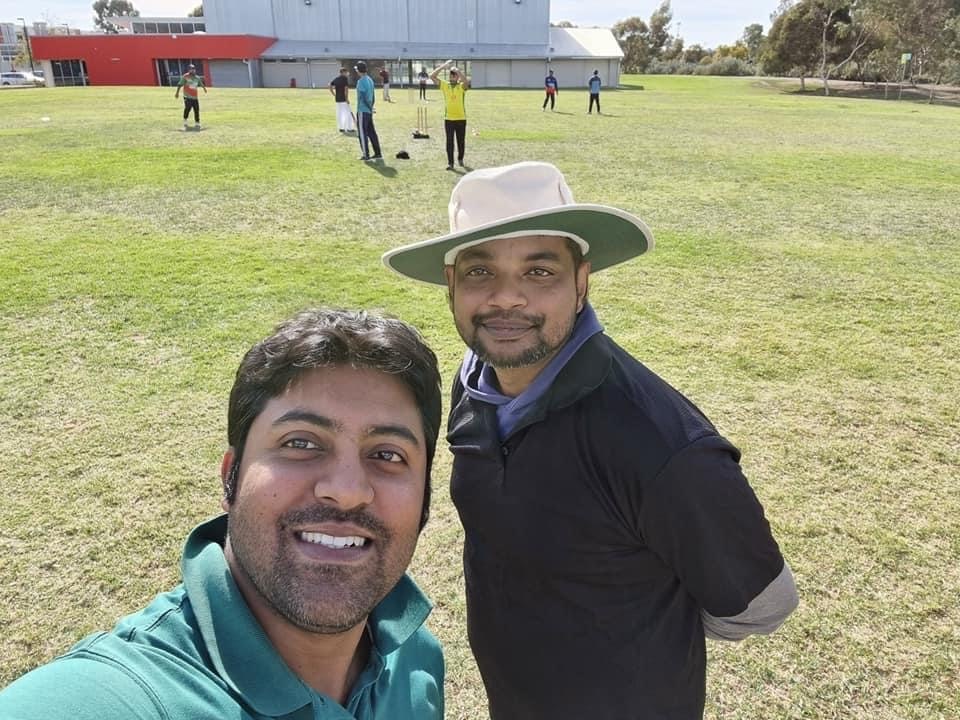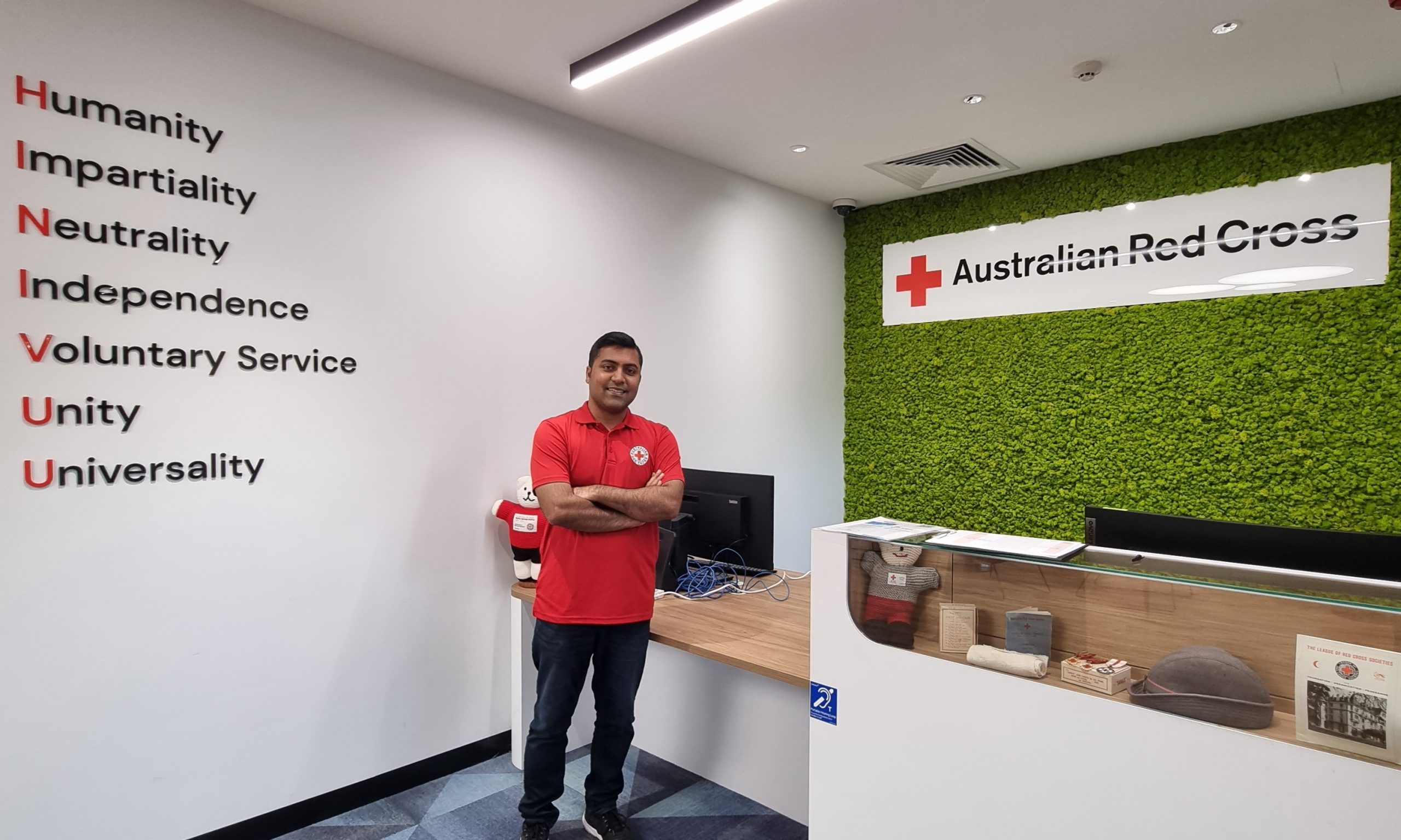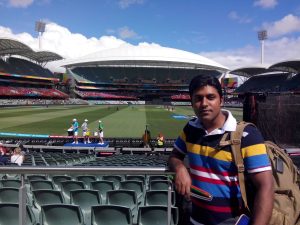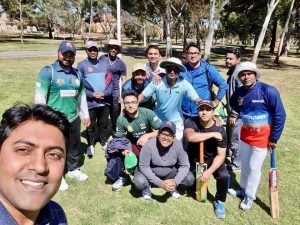16 Story of South Asian Diaspora Community in Adelaide, Australia
Towfik Reza
South Asian diaspora re-discover the strength of togetherness as a thriving community in Adelaide
Reminiscing through my early days in Adelaide, I can only recall being terribly homesick with the relentless haunting of uncertainty in a land completely unknown to me. However, this emptiness soon started to melt away since I met a group of cricket lovers who used to play cricket on Sunday mornings in a nearby school cricket ground. I soon started discovering my inner joy being a part of that tiny cricket community where I could speak in my own language, exchange views, learn new information and get to know the other cricket-loving Bengali community members. Thus, cricket served as a common interest for us while coming under one umbrella with a uniform goal.
Unlike someone native, most first-generation immigrants go through a similar phase in their early days and therefore, the value of having their own community around during such times is beyond description. The Southeast Asian communities living in Adelaide, South Australia are the most thriving ones that have been evolving with time as a unified, strong, cooperative and resourceful platform for their respective community members.

The Bengali community here is no different and is showcasing its own glory being active and functional both socially and culturally through observing important historical days, celebrating religious and cultural events and not to mention organizing various sports programs throughout the year.
Cricket, as the most popular game in Bangladesh, has been playing a vital role in making this platform a one-size-fits-all through creating a strong network of support and collaboration. Being a cricket lover, I have observed how this game has brought part of this community together, forming unity among community members, building strong friendships among them and creating a platform to share information, practice networking as well as help each other along the way. The newly migrated community members have always been the prime beneficiaries of this platform.
- Towfik at Adelaide stadium.
- Sports bring South Asian community together in Australia
- South Asian family together enjoying time in Australia, their new home.
Photo: Towfik Reza, Year: 2022.
Technology has always been a blessing in terms of keeping us all connected both locally and globally. We, the cricket-loving people, kept ourselves connected using the platform of Facebook through a dedicated page and we often organize cultural programs, social outings and sports competitions to stay connected besides our regular cricket events. This way, we involved our families too eventually making it a bigger cricket-focused community.
Being a part of such a vibrant community has always been of utmost importance to me. Community participation and empowerment help us to collaborate with each other, ensure self-development and keep our own culture alive on a foreign land. Amidst all the twists and turns of life as a migrant, community makes us positive and optimistic.
Question for Reflection:
- What type of community was the author discussing in this case study?
- Do you think community development can be done by a community group/ without the help of an agency?
About Author and his motivation for community organizing in Adelaide, Australia
Professionally, I have been involved with community work since 2009 starting with ActionAid Bangladesh and now with Australian Red Cross, and my involvement with various community development projects so far in both Bangladesh and Australia has positively shaped my capacity in realizing as well as appreciating the strength of such communities far away from home.
While working with ActionAid Bangladesh back in 2009, I was involved with some great community development projects and had some invaluable experience of seeing people getting involved at grass-roots level and achieve positive outcome through bringing social changes and addressing issues that play important roles in their lives.
Part of my experience there was when Dr. Mahbub Hasan and I had a chance to work in a project titled ‘Community Journalism’. We formed 38 community journalist teams in 26 districts of Bangladesh situated in remote parts of the country including the capital. Not to mention, the outcome of the project was significant and was deeply in line with the key objectives of their mother development area (DA) project and therefore, got sustainability being functional till date.
The biggest outcome of this project was enabling those small teams to identify the issues that impact their lives negatively and then publish them in their quarterly newsletters under the guidance of the local journalists and ActionAid staff. This publishing was critical to draw the much-needed attention of the policy makers. This eventually helped them escalate those issues from local to the national level and form policies and legislation to address and resolve those issues at the end. I have talked about this as an example to reiterate the fact that a community, no matter how big or small it may be, if united and active, can bring about positive changes.

So far, my career in Australia has also been focused on community services and I have mainly worked in workforce scheduling roles in various organisations providing services to people and children with disabilities. My current role at Australian Red Cross is focused in providing transport service to the senior citizens living independently in the community. The program beneficiaries under this program are being supported to maintain an independent life through accessing this transport service to get to their medical and social appointments. This scope of mobility has a great impact on their lives as they can fix their own medical, social and other appointments without relying much on their family members and this freedom of mobility is something that they always appreciate and are greatly thankful for.
KEY TAKEAWAYS AND FEEDBACK
We want to learn your key takeaways and feedback on this chapter.
Your participation is highly appreciated. It will help us to enhance the quality of Community Development Practice and connect with you to offer support. To write your feedback, please click on Your Feedback Matters.
Thank you!




